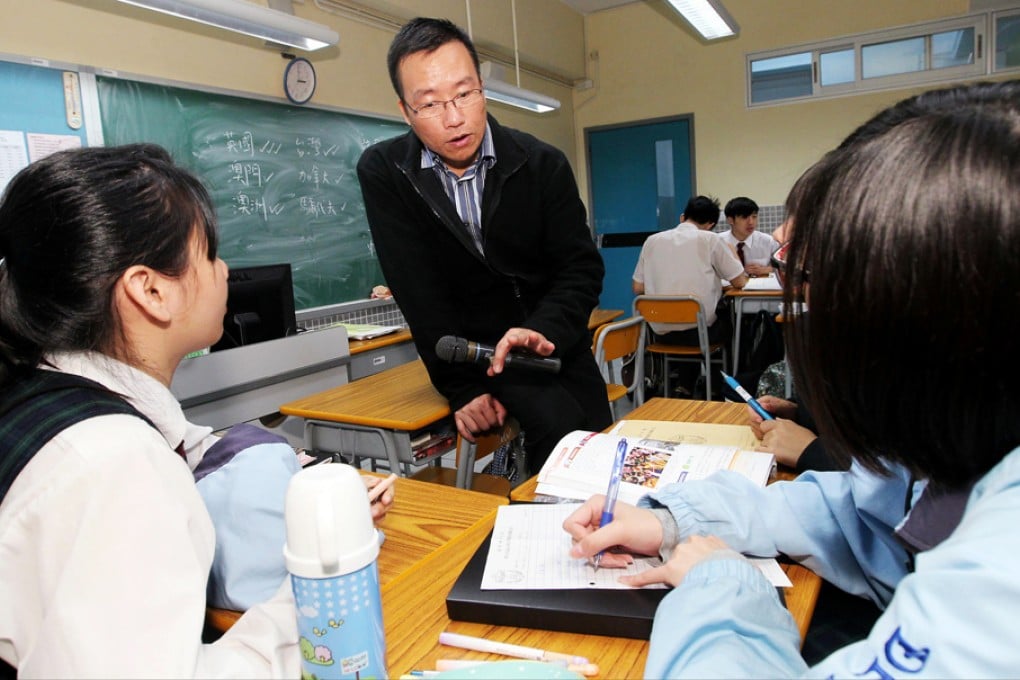Education Bureau puts liberal studies under the microscope
Educators are divided over the effectiveness of liberal studies being taught as a mandatory subject in local secondary schools. Linda Yeung found students also had strong opinions on the subject

A jovial atmosphere prevailed in the classroom as groups of senior form students took on adult roles as directors of a company debating where they should set up a regional base - Hong Kong or Shanghai. In turn, they argued their case before the audience of fellow students acting as company shareholders.
The students appeared to enjoy the role play in the liberal studies class at De La Salle Secondary School.
Nobody would choose [liberal studies] if it were an elective subject
A core subject in the senior secondary curriculum launched in 2009, liberal studies is intended to broaden the mindsets of students and encourage them to put on their thinking caps. But it has remained controversial, being blamed for exacerbating the workload of both students and teachers.
Many have also cast doubt over its effectiveness in fostering critical thinking.
As part of a mid-term review of the new curriculum, the Education Bureau is seeking views from schools and other stakeholders on improving the subject's curriculum and assessment methods.
Students have griped about the extra work needed for the independent enquiry study (IES), an extensive research endeavour that includes a 1,500- to 4,000-word research essay for the school-based assessment of the subject. Some want liberal studies to be an elective, not a core subject.